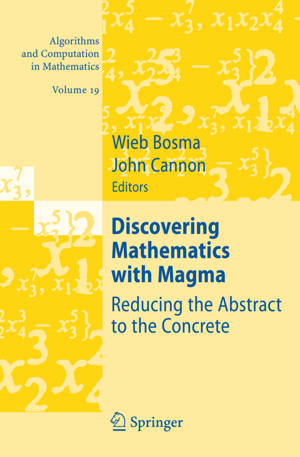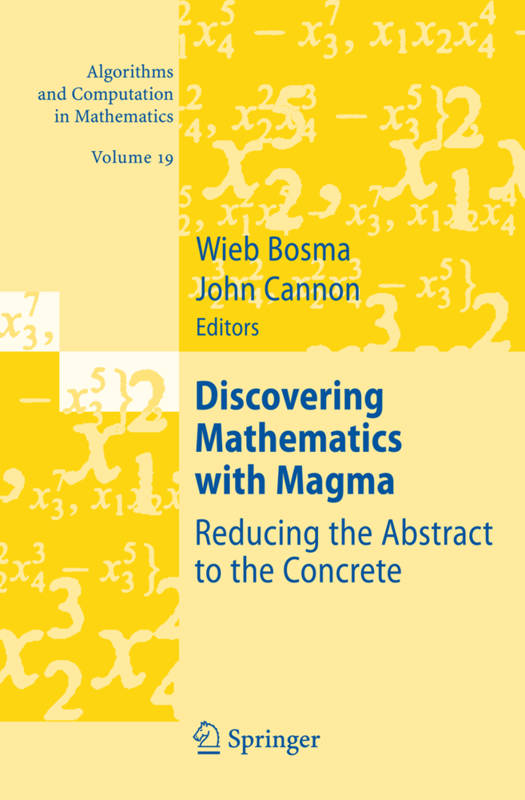
- Afhalen na 1 uur in een winkel met voorraad
- Gratis thuislevering in België vanaf € 30
- Ruim aanbod met 7 miljoen producten
- Afhalen na 1 uur in een winkel met voorraad
- Gratis thuislevering in België vanaf € 30
- Ruim aanbod met 7 miljoen producten
Zoeken
Discovering Mathematics with Magma
Reducing the Abstract to the Concrete
€ 106,95
+ 213 punten
Omschrijving
The appearance of this volume celebrates the ?rst decade of Magma, a new computeralgebrasystemlaunchedattheFirstMagmaConferenceonCom- tational Algebra held at Queen Mary and West?eld College, London, August 1993. This book introduces the reader to the role Magma plays in advanced mathematical research. Each paper examines how the computer can be used to gain insight into either a single problem or a small group of closely related problems. The intention is to present su?cient detail so that a reader can (a), gain insight into the mathematical questions that are the origin of the problems, and(b), developanunderstandingastohowsuchcomputations are speci?edinMagma.Itishopedthatthereaderwillcometoarealisationofthe important rolethatcomputational algebracanplayinmathematical research. Readers not primarily interested in using Magma will easily acquire the skills needed to undertake basic programming in Magma, while experienced Magma users can learn both mathematics and advanced computational methods in areas related to their own. The core of the volume comprises 14 papers. The authors were invited to submit articles on designated topics and these articles were then reviewed by referees. Although by no means exhaustive, the topics range over a consid- ablepartofMagma'scoverageofalgorithmicalgebra: fromnumbertheoryand algebraicgeometry, viarepresentationtheoryandcomputationalgrouptheory to some branches of discrete mathematics and graph theory. The papers are preceded by an outline of the Magma project, a brief summary of the papers and some instructions on reading the Magma code. A basic introduction to the Magma language is given in an appendix. Theeditorsexpresstheirgratitudetothecontributorstothisvolume, both for the work put into producing the papers and for theirpatience.
Specificaties
Betrokkenen
- Uitgeverij:
Inhoud
- Aantal bladzijden:
- 364
- Taal:
- Engels
- Reeks:
- Reeksnummer:
- nr. 19
Eigenschappen
- Productcode (EAN):
- 9783642072314
- Verschijningsdatum:
- 30/11/2010
- Uitvoering:
- Paperback
- Formaat:
- Trade paperback (VS)
- Afmetingen:
- 156 mm x 234 mm
- Gewicht:
- 557 g

Alleen bij Standaard Boekhandel
+ 213 punten op je klantenkaart van Standaard Boekhandel
Beoordelingen
We publiceren alleen reviews die voldoen aan de voorwaarden voor reviews. Bekijk onze voorwaarden voor reviews.






